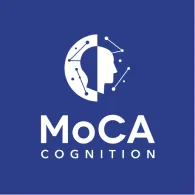The ability to reverse memory loss depends on the cause of the memory loss and the specific circumstances. Memory loss can be caused by a wide range of factors, including aging, stress, lack of sleep, medical conditions, medications, and more. Here are some considerations regarding memory loss and whether it can be reversed:
-
Age-related memory loss
As people age, it is common to experience some degree of age-related memory decline. There are strategies and practices, such as mental stimulation, a healthy lifestyle, and memory exercises, that can help slow down or improve mild age-related memory issues. However, complete reversal of age-related memory decline may be challenging.
-
Stress and lifestyle factors
High levels of stress, inadequate sleep, poor nutrition, and other lifestyle factors can contribute to memory problems. In these cases, addressing the underlying causes by managing stress, improving sleep, and adopting a healthy lifestyle can lead to significant improvements in memory function.
-
Medication-induced memory loss
Certain medications can cause memory problems as a side effect. In some cases, changing or adjusting medications, under the guidance of a healthcare professional, can help improve memory.
-
Medical conditions
In certain cases, remedying the underlying medical condition, such as B12 deficiency or thyroid disease can lead to partial or even complete restoration of memory loss. On the other hand, conditions such as Alzheimer’s disease and various forms of dementia, are typically progressive and irreversible. While there are treatments to manage symptoms, newly FDA-approved disease modifying therapies for Alzheimer’s disease now offer additional avenues for intervention to slow down the progression.
-
Traumatic brain injury
Memory loss resulting from a traumatic brain injury (TBI) can vary in severity. The extent of recovery depends on the severity of the injury and the effectiveness of rehabilitation and treatment. Some individuals with mild TBIs may experience significant recovery, while those with more severe injuries may have more limited improvement.
-
Cognitive rehabilitation
In cases of memory loss due to stroke, brain injury, or other neurological conditions, cognitive rehabilitation programs can be beneficial. These programs aim to improve cognitive function, including memory, through structured exercises and therapies.
It’s essential to consult with a healthcare professional if you or a loved one is experiencing significant and persistent memory loss. They can help determine the underlying cause, provide a diagnosis, and recommend appropriate interventions or treatments. In some cases, early intervention and management can help slow the progression of memory loss and improve overall cognitive function. However, complete reversal of memory loss is not always possible, particularly in cases of neurodegenerative conditions.
